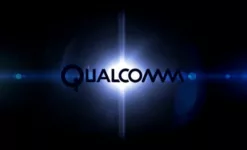I’ve been covering technology in one form or other since the 1970s, and I’ve seen a lot of firms, including a few of my own, make horrible decisions. But one of the worst was when Apple allegedly decided to falsify evidence to get the US Government to destroy Qualcomm’s income source to allow Apple to take control of Qualcomm’s Intellectual Property. Apple has a horrible reputation of being an abusive partner (their reputation is that they drive a supplier out of business and then buy that suppliers IP on a fire sale), but this was so over the top that it will likely go down in history as one of the most outrageous things a firm has ever done to a critical partner.
While Apple lost (settled) its lawsuit against Qualcomm, shortly after the evidence of Apple’s alleged misdeeds became public, the FTC litigation continued even though the DOJ and half of the acting FTC commissioners backed Qualcomm (one recused on the five-person panel).
And the collateral damage would have undoubtedly shifted the balance for technology power in the vast Smartphone space from the US to China who, if current trends continue, will likely own the technology market in a decade or so anyway. It also would have forced reasonable standards to pivot away from Apple, suggesting a strategic exposure to that company’s actions even they hadn’t considered.
Let’s explore all of that this week.
The Background
Apple is a bully and has almost always been a bully when it comes to suppliers. It is their reputation; at one point, one of their partners was so pressured and pushing their employees so hard that they were jumping to their deaths. That wasn’t fixed by making things better, but by putting up nets so suicide attempts at the site would fail.
What seemed strange, however, was that the battle was between a company valued around a Trillion dollars and one valued under $100B with the higher-valued firm arguing THEY were being bullied. It didn’t even meet the sniff test, yet the FTC picked up the case. But, at the time, the FTC was going through a transition, and Apple made effective use of that understaffing to convince two commissioners (in what should have been a five-person panel) using that allegedly fabricated evidence that Qualcomm was abusing monopoly power. When fully staffed virtually, all of the new commissioners appeared to disagree with this position, one writing on an op-ed about that disagreement in the WSJ.
The model that was being challenged as anti-competitive had been in place for years and founded by companies like Motorola and Ericsson, who weren’t accused of wrongdoing. Finally, in the near joke of a trial, which I attended, the FTC’s chief witness was discredited as a result of a verdict invalidating his model from an earlier trial.
Yet the Judge, in some weird twist of reality ruled in favor of the FTC, and the Appellate Court just threw out that ruling.
But what would have happened had Qualcomm lost?
The Alternative Ending
Had Qualcomm lost, the company would have had its revenue crippled, and they were already still suffering from Apple’s suppliers, prompted by Apple, refusing to pay what they owed. Qualcomm’s ability to drive the world wireless market would have been vastly reduced, and the next country in line to drive those standards, given where much of the related manufacturing already occurs, would have been China. Even if Apple had successfully acquired Qualcomm’s IP on a fire sale, Apple doesn’t play well with others, and that limits their ability to drive standards. Hence, it is likely China would have just gone around them, leaving them in a similar dead-end with limited room for growth their PC line already enjoys.
Apple has never seemed to understand the power of licensing and, across decades, failed to understand the related advantages. This problem was at the core of the early disagreement between Microsoft and Apple when Microsoft effectively took the PC market from them and now again with Qualcomm. This outcome suggests that the benefit they would have received by winning would have been tactical and fleeting.
So, ironically, while Qualcomm is undoubtedly better off with a ruling in their favor, strategically, Apple is as well because they don’t end up in a critical role for which they are unsuited. And the US, for now, retains leadership in the mobile industry thanks to Qualcomm.
Wrapping Up: Lessons Learned
Every decade or so, companies, often the same companies, conclude in a time when they are facing revenue pressure, to use litigation as an offensive weapon. It always ends badly. This result is because CEOs aren’t litigation experts, and they are the ones driving the effort. At no time did the risk of fabricating evidence on Qualcomm justify the benefit of taking the company out. The result would have been dire for Apple, even if they hadn’t been caught. If things aren’t going well, using the skills you have shifting to a battlefield you don’t understand is likely to make them worse, and that is the lesson to take away from this.
The general rule is that when a company suddenly jumps into an area where they aren’t experts to deal with a problem where they are (Tim Cook was a Logistics Expert before becoming CEO, not an attorney), there is likely a massive problem in the company that is likely not being disclosed or inadequately covered. In Apple’s case, it was likely that the firm was losing market share and having to aggressively increase prices and margins to make up for that loss. But there are hard limits to price and margin increases, and doing so without challenge is one of the sines of monopoly power abuse.
In the end, abusing power either against customers or suppliers will generally end badly, and the repercussions for this to Apple will be lasting but likely less painful than had they won. IBM had a similar problem in the 1980s, and it nearly led to the failure of that company. What’s that old saying, “those that fail to learn from history are destined to repeat it?” Apple nearly put itself on a terrible path. I have little doubt, in a few years, that another company will try this again and, I expect, it will again end badly. Sadly CEOs don’t seem to learn from even recent history. (By the way, this is the second time Apple appeared to learn the same lesson).








